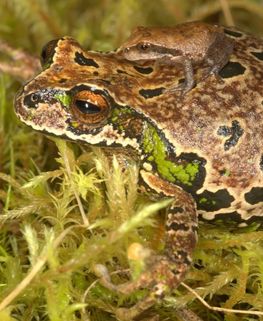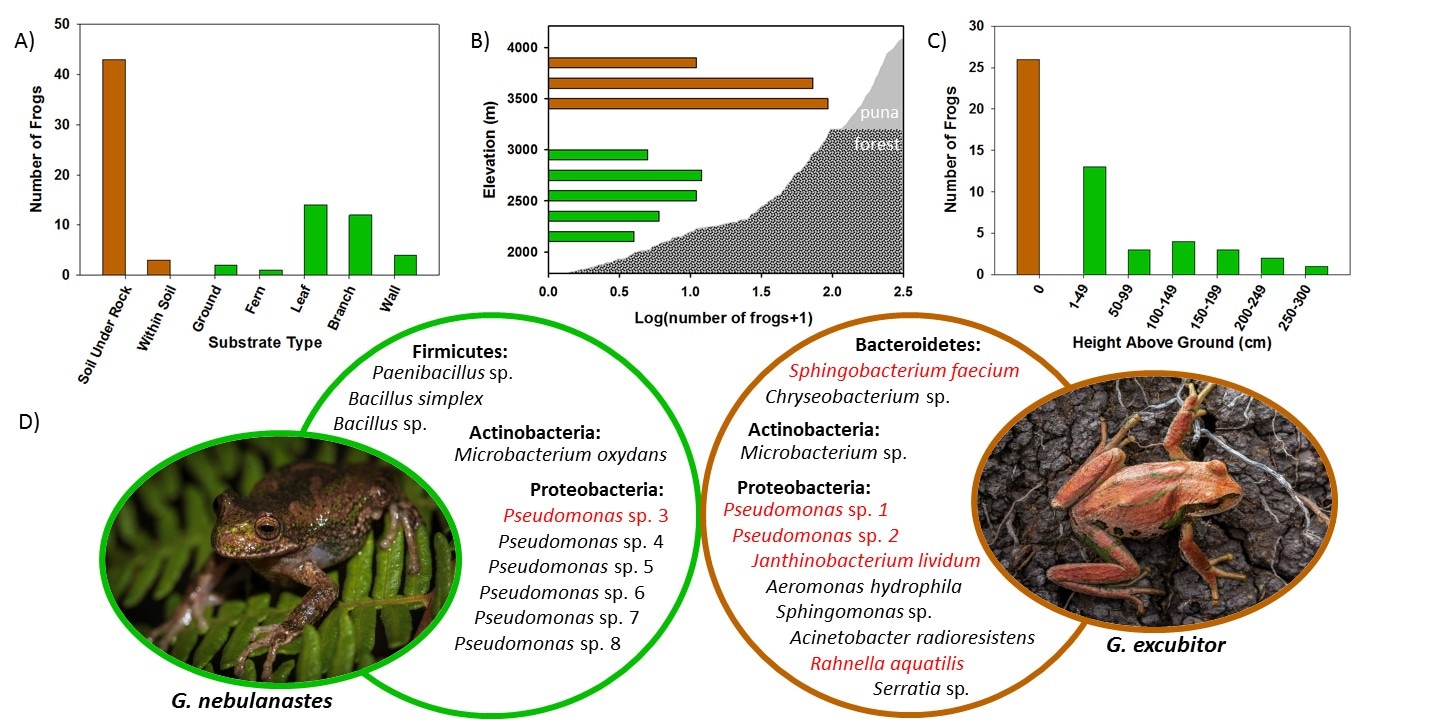
|
A new paper from the Catenazzi lab (Burkart et al. 2017) suggests that bacteria, but not peptides, play an important role in protecting a Peruvian marsupial frog from chytridiomycosis. Controlled susceptibility trials determined that Gastrotheca excubitor is resistant to chytridiomycosis but its congeneric, G. nebulanastes, is susceptible. It was hypothesized that this finding could be explained by interspecific differences in cutaneous defenses since infection by the disease-causing fungus Batrachochytrium dendrobatidis (Bd) is initiated on the skin. Two of these defenses, antimicrobial peptides and symbiotic bacteria, have previously been shown to play roles in providing other frogs with disease resistance. We collected peptides and bacteria from both species. Growth inhibition assays using whole peptide mixtures and bacterial isolates were conducted to determine if either defense was anti-Bd in vitro. Although neither species’ peptide mixtures differed in anti-Bd ability, 6/15 G. excubitor bacterial isolates inhibited Bd compared to 1/11 from G. nebulanastes. Furthermore, the G. nebulanastes isolate was the weakest of all anti-Bd bacteria. The frogs shared no bacterial species, and a microhabitat analysis suggested that environment may be an important inoculum since G. excubitor is terrestrial and G. nebulanastes is arboreal.  Understanding what contributes to host resistance is important for informing disease mitigation strategies. The application of anti-Bd bacteria to susceptible frogs has been proposed as a method to prevent chytridiomycosis, and our research corroborates the important role bacteria play in providing this protection. Furthermore, the reproductive strategy of these marsupial frogs likely allows for vertical transfer of bacteria from mother to offspring so that probiotics can proliferate through a population. The implications of our research extend beyond the amphibian-Bd disease system, as beneficial bacteria are likely important host defenses for other diseases.
0 Comments
Leave a Reply. |
Archives
June 2024
CATENAZZI LABNews from the lab Categories |

 RSS Feed
RSS Feed